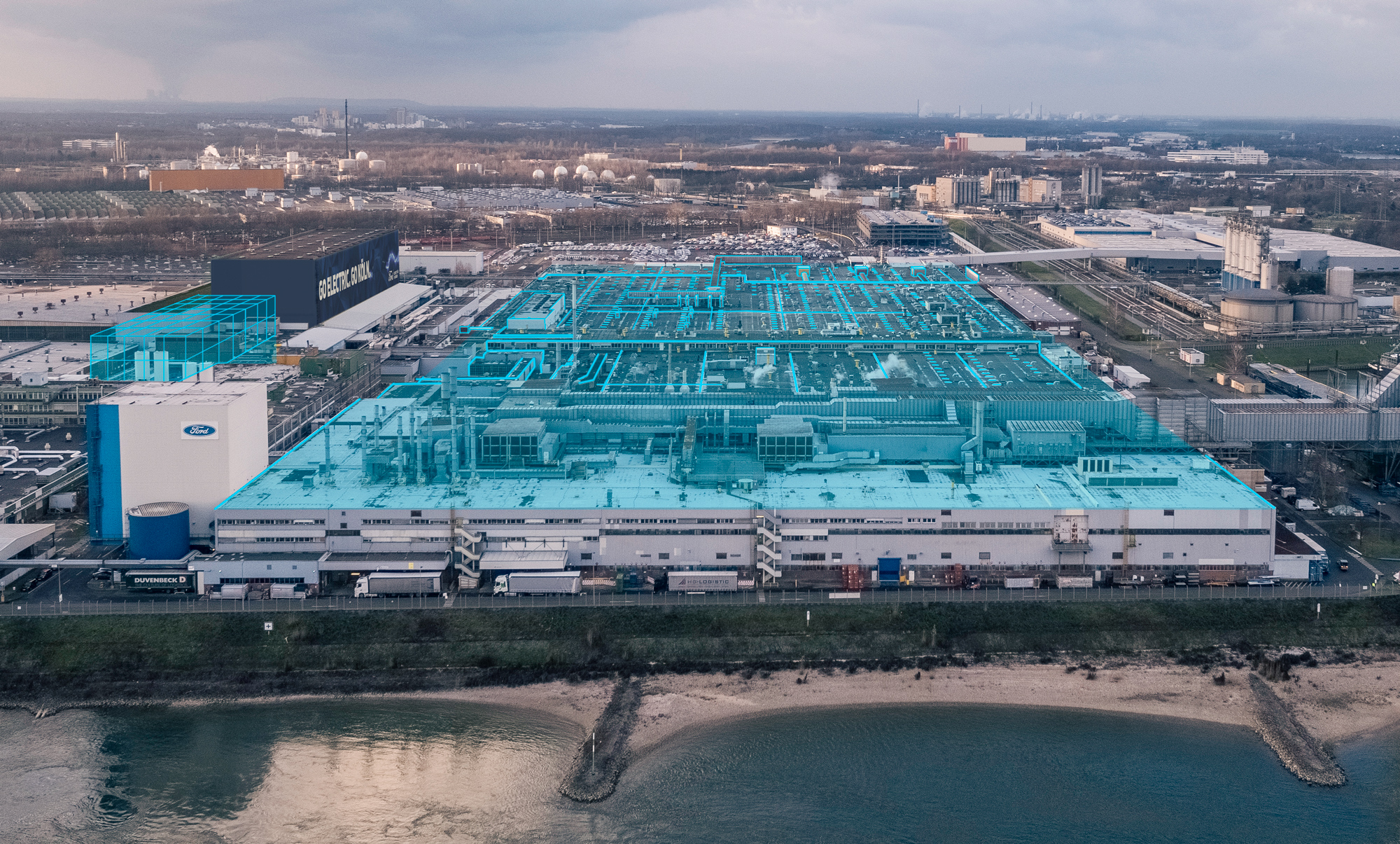
The road to 'sustainable profitability'
Submitted by:
Sara Waddington
Image caption: New investment for Ford Cologne Electrification Centre for the manufacture of electric vehicles, Ford’s first such facility in Europe.
Ford is taking a significant step forward in its European transformation with a commitment to go ‘all-in’ on electric passenger vehicles and to substantially grow and electrify its leading commercial vehicle business. It has committed that, by mid-2026, 100 per cent of its passenger vehicle range in Europe will be zero-emissions capable, all-electric or plug-in hybrid, and will be completely all-electric by 2030. Similarly, Ford’s entire commercial vehicle range will be zero-emissions capable, all-electric or plug-in hybrid, by 2024, with two-thirds of Ford’s commercial vehicle sales expected to be all-electric or plug-in hybrid by 2030.
The news comes after Ford reported, in the fourth quarter of 2020, a return to profit in Europe and announced it was investing at least US$ 22 billion globally in electrification through to 2025, nearly twice the company’s previous EV investment plans.
“We successfully restructured Ford of Europe and returned to profitability in the fourth quarter of 2020. Now we are charging into an all-electric future in Europe with expressive new vehicles and a world-class connected customer experience,” said Stuart Rowley, President, Ford of Europe. “We expect to continue our strong momentum this year in Europe and remain on track to deliver our goal of a six per cent EBIT margin as part of Ford’s plan to turn around our global automotive operations.”
Central to Ford’s transformation of its operations in Europe over the past two years were a US$ 1 billion improvement in structural costs, addressing underperforming markets, the creation of a more targeted vehicle line-up within three customer-focused business groups and partnerships to drive growth and improved levels of profitability across the business.
“In 2020, we achieved our sixth successive year as the leading commercial vehicle sales brand in Europe. Growth in our strong commercial vehicle business is key to European profitability, supported by new products and services, working with an extensive network of commercial vehicle converter partners, with our strategic alliance with Volkswagen and its Ford Otosan joint venture providing cost-effective vehicle development and sourcing,” added the automotive OEM.
Driving further growth in the commercial vehicle business will be an ecosystem built around connected services co-developed with customers and designed to enhance the customer experience and help their businesses to thrive. Ford and Google also recently announced the establishment of a new collaborative group, Team Upshift, to drive disruptive, data-driven opportunities.
Spearheading Ford’s advance into an all-electric future is a new $1 billion investment to modernise its vehicle assembly facility in Cologne, Germany, one of its largest manufacturing centres in Europe and the home of Ford of Europe. The investment will transform the existing vehicle assembly operations into the Ford Cologne Electrification Centre for the manufacture of electric vehicles, Ford’s first such facility in Europe.
Ford also confirmed that its first European-built, volume all-electric passenger vehicle for European customers will be produced at the facility from 2023, with the potential for a second all-electric vehicle built there under consideration.
“Our announcement to transform our Cologne facility, the home of our operations in Germany for 90 years, is one of the most significant Ford has made in over a generation. It underlines our commitment to Europe and a modern future with electric vehicles at the heart of our strategy for growth,” said Stuart Rowley, President, Ford of Europe.
